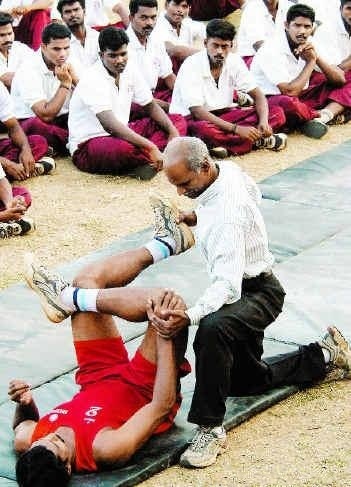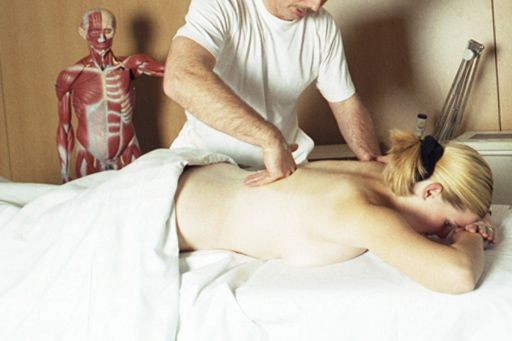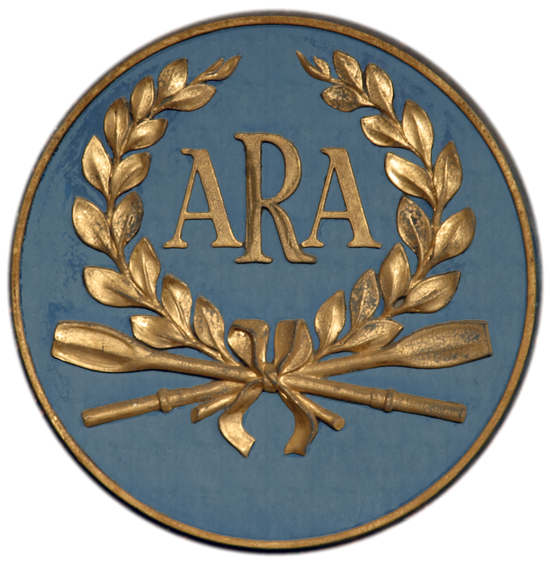|
Ann Redgrave
Ann, Lady Redgrave ( Elizabeth-Ann Callaway; born 8 February 1960) is a British surgeon and osteopath. She is the wife of British rower Sir Steve Redgrave. Rowing career Having taken up the sport in 1981, Redgrave rowed in the women's eight at the 1984 Los Angeles Olympics. The team which consisted of Astrid Ayling, Alexa Forbes, Gillian Hodges, Kate Holroyd, Belinda Holmes, Sarah Hunter-Jones, Kate McNicol and Sue Bailey (cox) finished in fifth place. She was part of the coxed four with Alison Bonner, Sarah Hunter-Jones, Tish Reid, and Lesley Clare (cox), that won the national title rowing for A.R.A squad, at the 1985 National Championships and represented England and won a silver medal in the eight and a bronze medal in the four, at the 1986 Commonwealth Games in Edinburgh, Scotland. She was Chief Medical Officer to GB Rowing between 1992 and 2001 in a part-time capacity. She became GB Rowing's first full-time Medical Officer in 2009. She was elected a Steward of He ... [...More Info...] [...Related Items...] OR: [Wikipedia] [Google] [Baidu] |
Sports Medicine
Sports medicine is a branch of medicine that deals with physical fitness and the treatment and prevention of injuries related to sports and exercise. Although most sports teams have employed team physicians for many years, it is only since the late 20th century that sports medicine emerged as a distinct field of health care. In some countries, sports medicine (or sport and exercise medicine) is a recognized medical specialty (with similar training and standards to other medical specialties). In the majority of countries where sports medicine is recognized and practiced, it is a physician (non-surgical) specialty, but in some (such as the USA), it can equally be a surgical or non-surgical medical specialty, and also a specialty field within primary care. In other contexts, the field of sports medicine encompasses the scope of both medical specialists and also allied health practitioners who work in the field of sport, such as physiotherapists, athletic trainers, podiatrists ... [...More Info...] [...Related Items...] OR: [Wikipedia] [Google] [Baidu] |
Patricia Reid (rower)
Patricia Josephine Reid (born 2 March 1964) is a retired British rower who competed for Great Britain at the 1992 Summer Olympics. Rowing career Reid began rowing in 1984 for the Somerville College, Oxford second eight before progressing to Osiris (the Oxford University second eight) and the Somerville first eight. She was part of the coxed four with Alison Bonner, Sarah Hunter-Jones, Ann Callaway and Lesley Clare (cox), that won the national title rowing for A.R.A squad, at the 1985 National Championships and subsequently went to her first World Championships in Belgium. In 1986 she was the OUWBC President and rowed in the Oxford first eight and represented England winning a silver medal in the eight and a bronze medal in the coxed four, at the 1986 Commonwealth Games in Edinburgh, Scotland. She was a member of the eight that won the national title rowing for a A.R.A squad at the 1987 National Championships. She won the single sculls national title at the 1990 National Ch ... [...More Info...] [...Related Items...] OR: [Wikipedia] [Google] [Baidu] |
Oxford University Women's Boat Club
Oxford University Women's Boat Club (OUWBC) is the rowing club for female rowers (and coxes of either sex) who are students at the University of Oxford. The club was founded in 1926 and is now based in Wallingford at the Fleming Boat House, along with OUBC, OUWLRC and OULRC. The training season runs from September through to July, with the major event, the Women's Boat Race against Cambridge University Women's Boat Club (CUWBC), happening in March or April. Up until 2015 the Women's Boat Race had taken place over 2000m as part of the Henley Boat Races on the Henley Reach. In 2015, for the first time, the Women's Boat Race took place on the 6.8 km Championship Course on the Tideway, and was televised on the BBC alongside the Men's Boat Race. History The original challenge between the Oxford and Cambridge University boat clubs was issued in 1829. As a result, two men's eights raced on the river at Henley-on-Thames. In 1836 the race was moved to the Tideway in Lon ... [...More Info...] [...Related Items...] OR: [Wikipedia] [Google] [Baidu] |
Physiotherapy
Physical therapy (PT), also known as physiotherapy, is one of the allied health professions. It is provided by physical therapists who promote, maintain, or restore health through physical examination, diagnosis, management, prognosis, patient education, physical intervention, rehabilitation, disease prevention, and health promotion. Physical therapists are known as physiotherapists in many countries. In addition to clinical practice, other aspects of physical therapist practice include research, education, consultation, and health administration. Physical therapy is provided as a primary care treatment or alongside, or in conjunction with, other medical services. In some jurisdictions, such as the United Kingdom, physical therapists have the authority to prescribe medication. Overview Physical therapy addresses the illnesses or injuries that limit a person's abilities to move and perform functional activities in their daily lives. PTs use an individual's history and phys ... [...More Info...] [...Related Items...] OR: [Wikipedia] [Google] [Baidu] |
Bourne End, Buckinghamshire
Bourne End is a village mostly in the parish of Wooburn, but partly in that of Little Marlow in Buckinghamshire, England. It is about five miles (8 km) south-east of High Wycombe and three miles (5 km) east of Marlow, near the boundary with Berkshire and close to where the Buckinghamshire River Wye empties into the Thames. History Bourne End's original location differed from today's established village centre, and was a half-mile downstream on the River Thames. The name refers to the end of the river (''bourne'' being an obsolete term for river), and derived from the mouth of the River Wye. Then a hamlet, it appears on Morden's 1722 map of Buckinghamshire as "Born end". It was noted in the 19th century, however, that the name had been corrupted to "Bone End", apparently through local mispronunciation and thence on official maps and documents. In 1858, the vicar of Wooburn succeeded in reversing the change, and the corrected name remains in use today. The length of ... [...More Info...] [...Related Items...] OR: [Wikipedia] [Google] [Baidu] |
British School Of Osteopathy
The University College of Osteopathy (UCO), formerly the British School of Osteopathy (BSO), is the largest and oldest school of osteopathy in the United Kingdom. The UCO holds Recognised Qualification (RQ) status from the statutory regulatory body for osteopathy in the UK, the General Osteopathic Council. The institution was granted degree awarding powers in October 2015. It was given University College status in September 2017 from the UK Privy Council, and it is an exempt charity. History UCO was founded as the BSO in 1915 by John Martin Littlejohn, an Osteopath himself, but was not incorporated until 1917 due to the First World War. Littlejohn died in 1947 and the school's direction was shaped by several people including Clem Middleton and Margot Gore. The school received charity status in 1963. In 1984, Princess Anne became the institution's Patron and is currently the Chancellor. The University College of Osteopathy has a range of undergraduate and postgraduate prog ... [...More Info...] [...Related Items...] OR: [Wikipedia] [Google] [Baidu] |
Seoul Olympic Games
The 1988 Summer Olympics (), officially known as the Games of the XXIV Olympiad () and commonly known as Seoul 1988 ( ko, 서울 1988, Seoul Cheon gubaek palsip-pal), was an international multi-sport event held from 17 September to 2 October 1988 in Seoul, South Korea. 159 nations were represented at the games by a total of 8,391 athletes (6,197 men and 2,194 women). 237 events were held and 27,221 volunteers helped to prepare the Olympics. The 1988 Seoul Olympics were the second summer Olympic Games held in Asia and the first held in South Korea. As the host country, South Korea ranked fourth overall, winning 12 gold medals and 33 medals in the competition. 11,331 media (4,978 written press and 6,353 broadcasters) showed the Games all over the world. These were the last Olympic Games of the Cold War, as well as for the Soviet Union and East Germany, as both ceased to exist before the next Olympic Games in 1992. The Soviet Union dominated the medal count, winning 55 gold an ... [...More Info...] [...Related Items...] OR: [Wikipedia] [Google] [Baidu] |
British Rowing
British Rowing, formerly the Amateur Rowing Association (ARA), is the national governing body for the sport of rowing (both indoor and on-water rowing). It is responsible for the training and selection of individual rowers and crews representing Great Britain and England, and for participation in and the development of rowing in England. Scottish Rowing (formerly SARA) and Welsh Rowing (formerly WARA) oversee governance in their respective countries, organise their own teams for the Home International Regatta and input to the GB team organisation. British Rowing is a member of the British Olympic Association and the World Rowing Federation, also known as FISA. History The ARA (as the predecessor of British Rowing) had it roots in the desire to form crews drawn from the leading English clubs 'for the purpose of defeating the foreign or colonial invader' although in fact this aim was not fulfilled until much later. A series of meetings were held in Putney from 1877 culmin ... [...More Info...] [...Related Items...] OR: [Wikipedia] [Google] [Baidu] |
Scotland
Scotland (, ) is a country that is part of the United Kingdom. Covering the northern third of the island of Great Britain, mainland Scotland has a border with England to the southeast and is otherwise surrounded by the Atlantic Ocean to the north and west, the North Sea to the northeast and east, and the Irish Sea to the south. It also contains more than 790 islands, principally in the archipelagos of the Hebrides and the Northern Isles. Most of the population, including the capital Edinburgh, is concentrated in the Central Belt—the plain between the Scottish Highlands and the Southern Uplands—in the Scottish Lowlands. Scotland is divided into 32 administrative subdivisions or local authorities, known as council areas. Glasgow City is the largest council area in terms of population, with Highland being the largest in terms of area. Limited self-governing power, covering matters such as education, social services and roads and transportation, is devolved from the ... [...More Info...] [...Related Items...] OR: [Wikipedia] [Google] [Baidu] |
Edinburgh
Edinburgh ( ; gd, Dùn Èideann ) is the capital city of Scotland and one of its 32 Council areas of Scotland, council areas. Historically part of the county of Midlothian (interchangeably Edinburghshire before 1921), it is located in Lothian on the southern shore of the Firth of Forth. Edinburgh is Scotland's List of towns and cities in Scotland by population, second-most populous city, after Glasgow, and the List of cities in the United Kingdom, seventh-most populous city in the United Kingdom. Recognised as the capital of Scotland since at least the 15th century, Edinburgh is the seat of the Scottish Government, the Scottish Parliament and the Courts of Scotland, highest courts in Scotland. The city's Holyrood Palace, Palace of Holyroodhouse is the official residence of the Monarchy of the United Kingdom, British monarchy in Scotland. The city has long been a centre of education, particularly in the fields of medicine, Scots law, Scottish law, literature, philosophy, the sc ... [...More Info...] [...Related Items...] OR: [Wikipedia] [Google] [Baidu] |
Bronze Medal
A bronze medal in sports and other similar areas involving competition is a medal made of bronze awarded to the third-place finisher of contests or competitions such as the Olympic Games, Commonwealth Games, etc. The outright winner receives a gold medal and the second place a silver medal. More generally, bronze is traditionally the most common metal used for all types of high-quality medals, including artistic ones. The practice of awarding bronze third place medals began at the 1904 Olympic Games in St. Louis, Missouri, before which only first and second places were awarded. Olympic Games Minting Olympic medals is the responsibility of the host city. From 1928–1968 the design was always the same: the obverse showed a generic design by Florentine artist Giuseppe Cassioli with text giving the host city; the reverse showed another generic design of an Olympic champion. From 1972–2000, Cassioli's design (or a slight reworking) remained on the obverse with a custom d ... [...More Info...] [...Related Items...] OR: [Wikipedia] [Google] [Baidu] |






